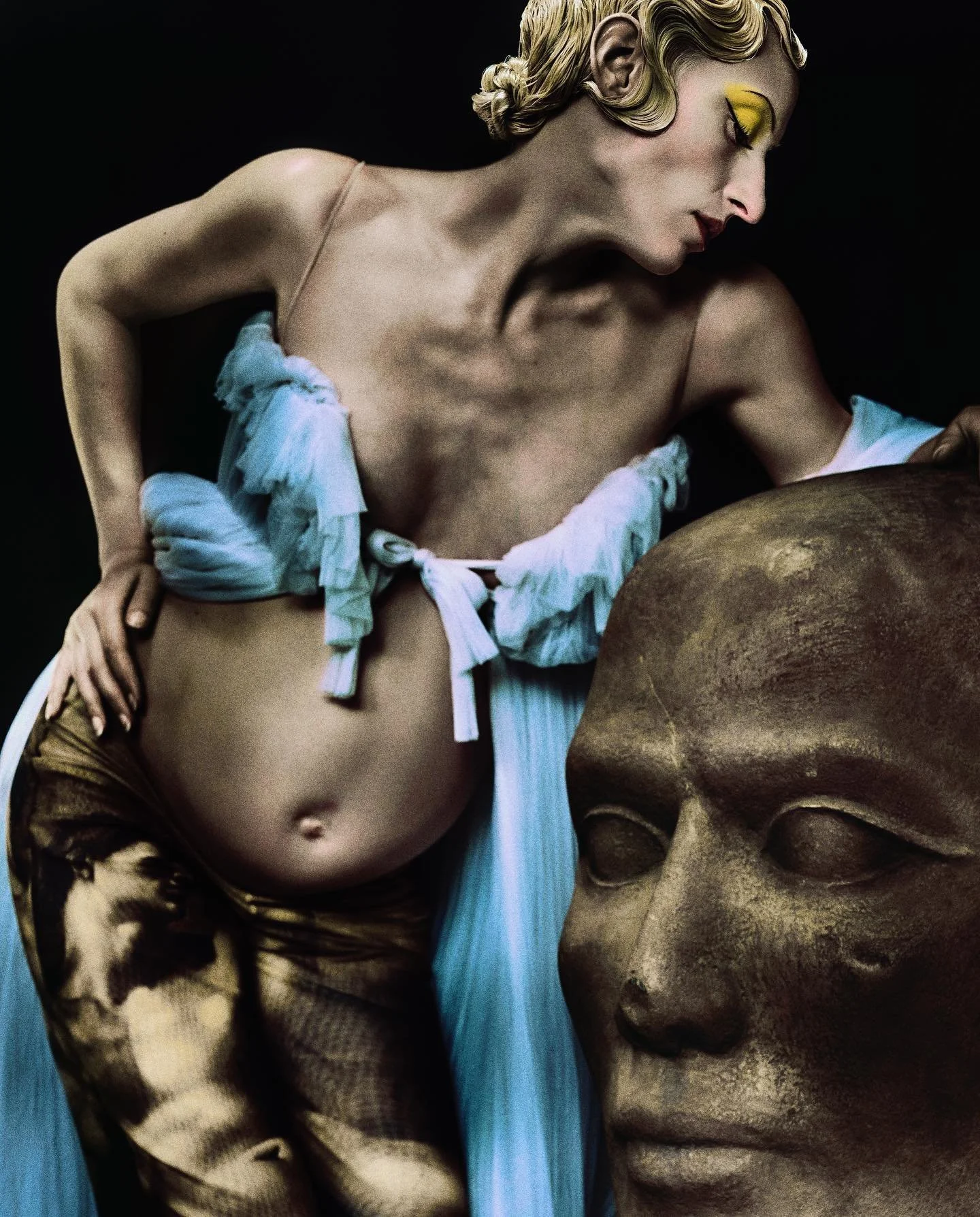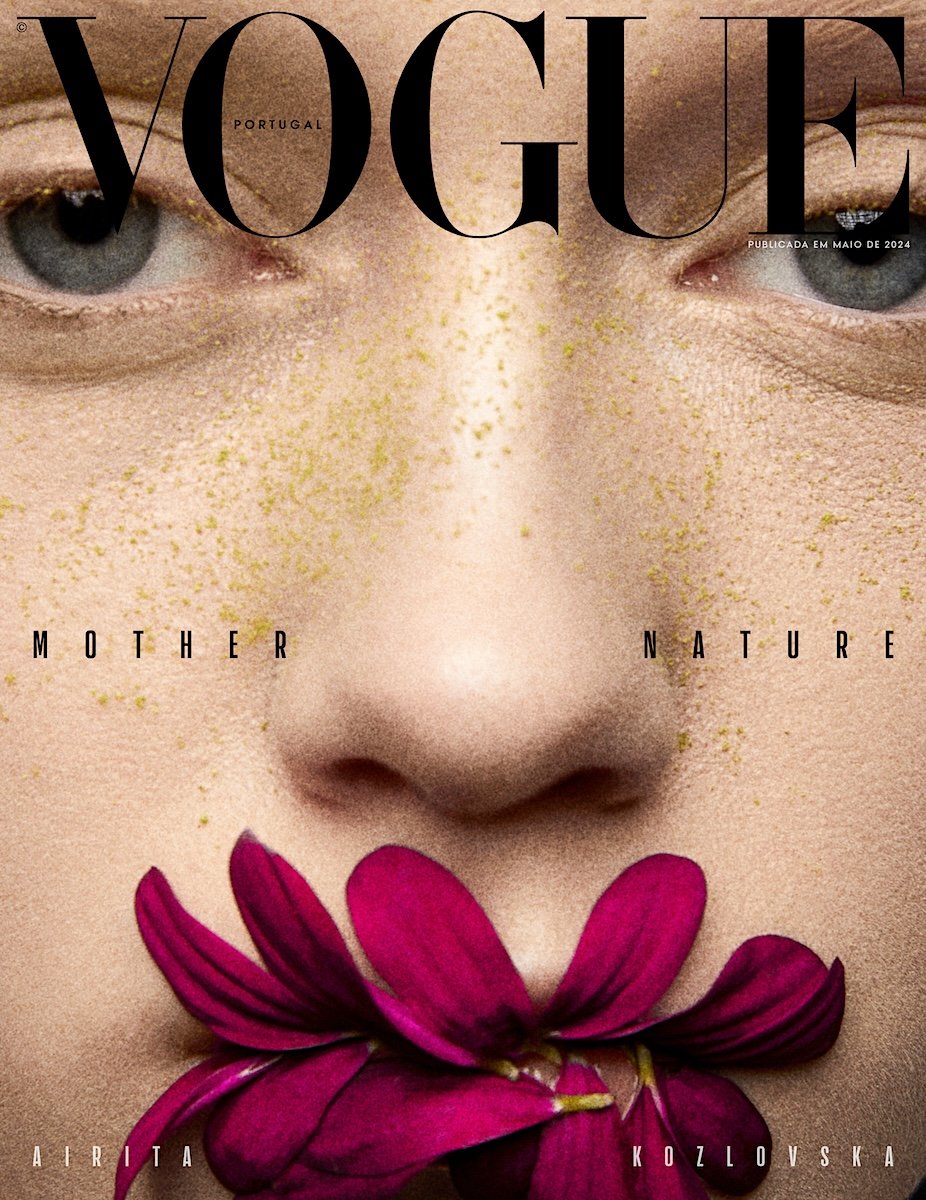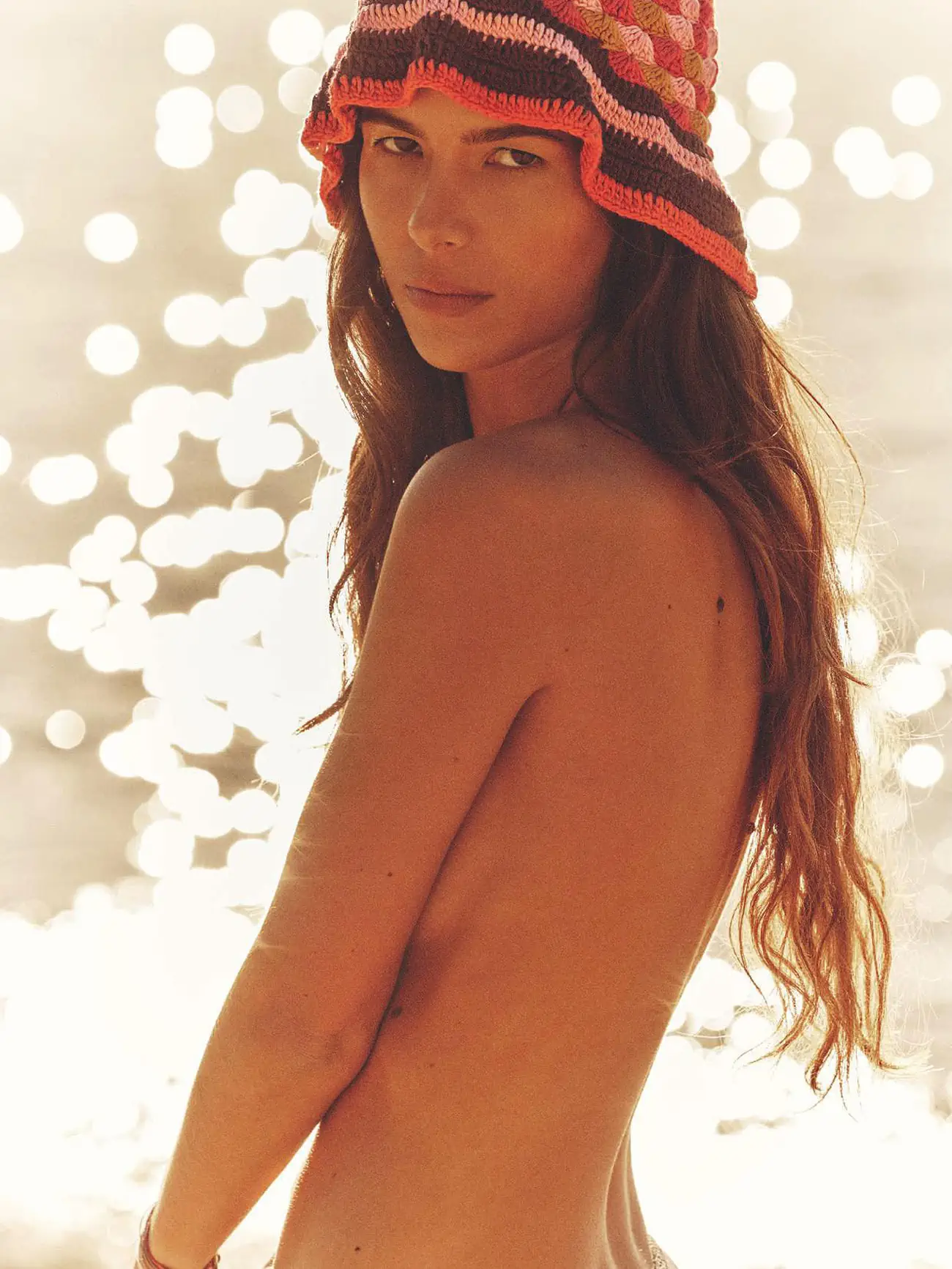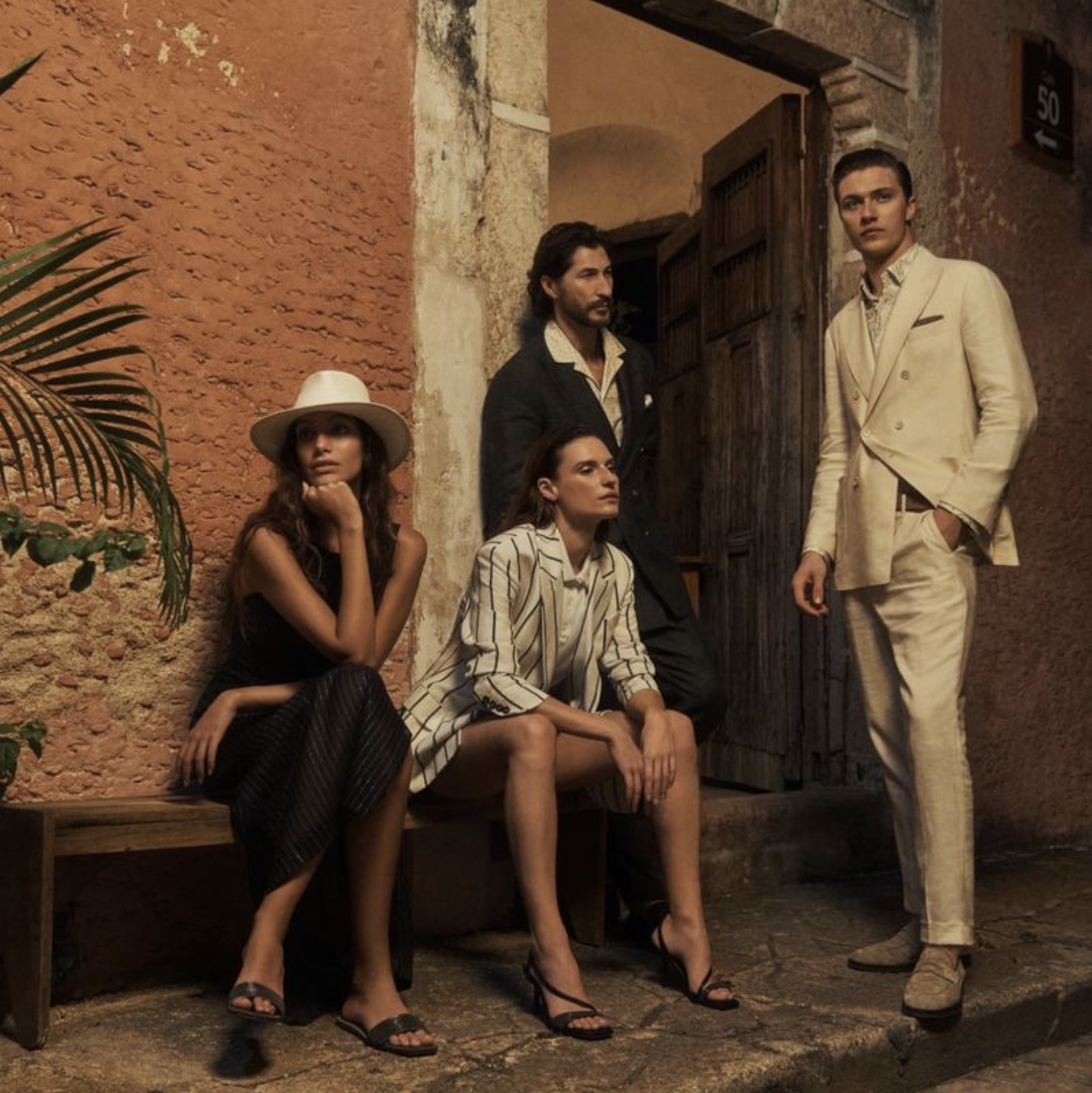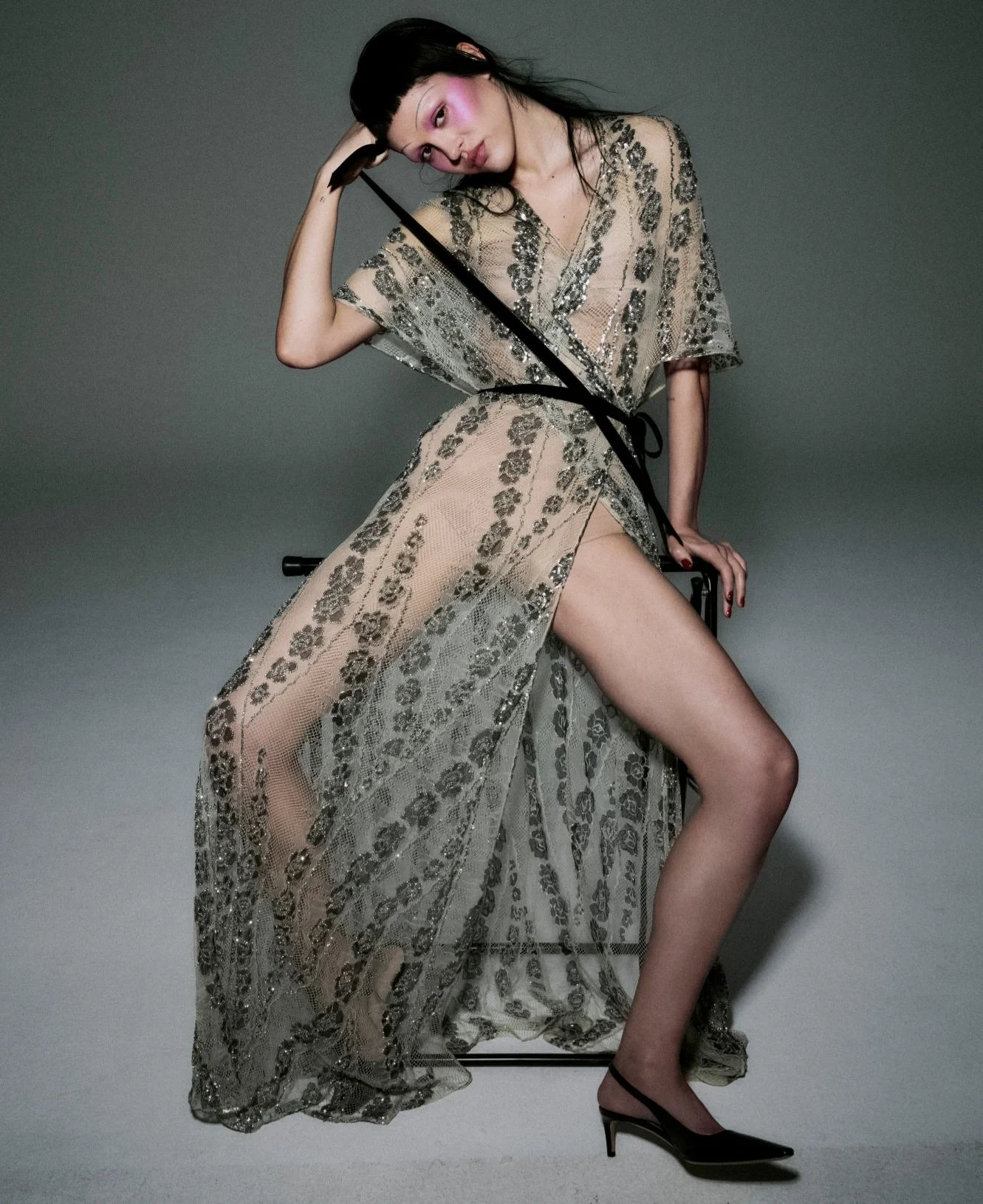Vogue Portugal May 2024 Covers Announce an Exploration of Nature & Motherhood
/Mother-Nature, Gaia, Terra Mater, the “cult of the feminine” is center stage in the May 2024 issue of Vogue Portugal, writes Sofia Lucas.
The magazine chose three male-identifying photographers to create the imagery around this deeply feminine topic:
Top cover #1: Maria Carolina Klaumann by Élio Nogueira for Vogue Portugal May 2024
Middle cover #2: Airita by Ékin Can Bayrakdar for Vogue Portugal May 2024
Bottom cover #3: Maggie Maurer by Alessio Albi for Vogue Portugal May 2024
Woman-identifying photographer Elizaveta Porodina is very close to Maggie Maurer and actually photographed the model during her pregnancy in a project for Jean Paul Gaultier.
The designer is a GREAT friend to women’s history and the truth of patriarchal tensions around female identity.
Porodina is very busy these days and presumably more expensive than other photographers. Perhaps she turned down the Vogue Portugal assignment.
However, no working photographer I know of delves deeper into the subject of the female psyche in all its dimensions in a modern world than Elizaveta Porodina [AOC archives].
As a clinically-trained, Jungian-informed psychologist, Elizaveta expertly channels the present and historical contradictions in women’s lives. I have personally championed Porodina for all these reasons; and we view woman’s history through the same fact-based lens.
The Porodina images of Maggie Maurer for Gaultier were shot in advance of the July 31, 2022 arrival of Maurer’s daughter Nora-Jane Joy Ghazaoui. Father Hicham Ghazaoui [IG] shared on his Instagram news that his baby girl is already a Yankees fan just like her mother and at only six days old.
Facts About Aristotle
The editorial issue overview opens with a quote from Aristotle:
“In all things of nature, there is something of the marvelous” - Aristotle
As educated women, we do not bow down to Aristotle, for clear and concise reasons. There’s no record that Aristotle, the great philosopher and foundational contributor to Western civilization, saw significant value in women.
To check myself for any new research, I just double-sourced Aristotle’s views on women in AI and it’s a fact that while the philosopher indeed saw nature as marvelous, he did not extend that value to women.
AOC has no desire to criticize Vogue Portugal, a magazine we value highly and report on regularly.
So an in-depth reminder of Aristotle’s expressed views on women will be posted separately. The fall of women in Greece is clearly documented in the progression of writings from Soocrates to Plato to Aristotle.
To give you a taste of my query, after first denying that Aristotle said anything negative about women in his writing, Squarespace AI then returned this response to my query about a very specific quote that is part of a long line of Aristotle’s published beliefs:
Aristotle's assertion that "the female is as it were a defective male" reflects the prevailing patriarchal attitudes of his time.
Anne argues that Aristotle actually helped to create these patriarchal values, not reflect them as a powerless man in the intellectual development of western civilization.
In Praise of Motherhood
Vogue Portugal’s intellectual purpose with this May 2024 issue is to explore the pressures and perils of motherhood in our modern world. “
It’s refreshing to read that “Fertility and creative power unite the image of the Mother with the concept of Nature.”
Their assertion that this collaboration dates back to the Paleolithic period, “at least 2.5 million years old”, is exciting — given that Anne of Carversville constantly speaks of human migration out of Africa, where humanity was born.
Clarification About Human Evolution Dates
Subject-to-change historical evidence presently dates human-generated [or Neanderthal as well] cave art to 40,000 years ago and not 2.5 million years. These references are Indonesian cave paintings in the island of Sulawesi; the El Castillo cave in Spain; and the Chauvet Cave, located in the Ardèche department in southern France and currently pegged at 30,000 years, not 40,000. Again, these dates are subject to change.
The biodiversity of 2.5 million years ago laid the foundation for the diverse array of life forms that exist on Earth today. But there is no evidence to suggest that fish, seals, and dolphins worshipped the feminine. And humans — in any of our prehistoric variations — simply did not exist.
After issuing this disclaimer, Anne of Carversville is delighted to plunge into deep and womanly waters with the May 2024 issue of Vogue Portugal. We have always celebrated the magazine’s intellectual edge in their interpretations of our fashion and style world. ~ Anne

